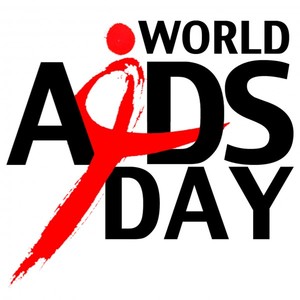Since 1988, the first day of December has been designated World AIDS Day; a day devoted to raising awareness of the AIDS pandemic caused by the spread of HIV. Health organizations, government and non-governmental organizations and individuals worldwide observe it, in part, by highlighting education material and resources around AIDS prevention and control.
The World Health Organization recognizes World AIDS Day as one of only eight official global public health campaigns. The Presbyterian AIDS Network (PAN), a network of the Presbyterian Mission Agency’s Presbyterian Health, Education & Welfare Association (PHEWA), offers a host of relevant educational, advocacy, fund raising and direct service resources to congregations and church communities wishing to share their vision for an AIDS-free world.
The World AIDS Day toolkit can be accessed on the PAN World AIDS Day resource page. It includes an opening letter, fact sheet, bulletin insert, worship litany and a sermon. George Kerr, a co-moderator for the Presbyterian AIDS Network and member of the Westminster Presbyterian Church in Washington, D.C., believes the resources have a positive impact for the faith community.
“Every year we provide a packet for World AIDS Day, and it’s a valuable tool for churches to use in their service, particularly for churches that don’t have a focus around HIV/AIDS,” says Kerr. “The kit contains the latest data, which makes it easier to talk about the issue with their congregation. In fact, the bulletin insert is easy to copy and paste into a weekly bulletin.”
This year’s theme, which has remained constant since 2102, is “Getting to Zero.” It represents zero new HIV infections, zero deaths from AIDS-related illnesses and zero discrimination. Kerr acknowledges that the fight against HIV/AIDS has had positive accomplishments over the years, but the battle is far from over.
“We’ve come so far with HIV research and learned so much about it thanks to technology, but we’ve still got a long way to go,” laments Kerr, who has been active in the battle against HIV/AIDS for two decades. “Stigma is still the number one item that keeps us from ‘getting to zero.’ Anything a church or faith community can do to break the stigma is beneficial to the world.”
In 2010 President Obama launched the first comprehensive National HIV/AIDS Strategy. Its original four goals were:
- Reducing HIV infections
- Increasing access to care and improving health outcomes for people living with HIV
- Reducing HIV-related disparities and health inequities
- Achieving a more coordinated national response
In July of this year, the strategy was updated via presidential executive order and focused on prioritizing activities for the next five years through 2020. The updates include:
- Widespread HIV testing and linkage to care, allowing for access to early treatment
- Broad support for people living with HIV to remain engaged in comprehensive care
- Universal viral suppression, which optimizes health and reduces viral transmission to others
- Access to comprehensive pre-exposure prophylaxis (PrEP) services, which prevents HIV infection by taking a pill every day
Many health advocates, including Kerr, possess unwavering support for syringe exchange programs as an effective tool to combat HIV infection and achieve cost savings. The 212th General Assembly (2000) advocated for lifting the ban on the use of federal funds to support needle exchange programs in the U.S. This followed action dating back to the 205th General Assembly (1993) that supported legalization of programs to distribute clean hypodermic needles, with counseling, to drug-dependent individuals for the prevention of disease. Kerr has witnessed first-hand the effectiveness of syringe exchange programs, and is a staunch defender for lifting the current federal ban which forbids the use of federal funds for syringe exchange.
“From 2007-2011 in Washington, D.C., we witnessed a more than 70 percent drop in local infection rates because we were able to use local funds to manage needle exchange,” says Kerr. “We have scientific data that shows needle exchange actually works. I urge your readers to contact your state representatives and Senators to support lifting the ban on needle exchange.”
More information on syringe access can be found here. To become a PAN member or to donate to support its cause, visit the PAN website.

